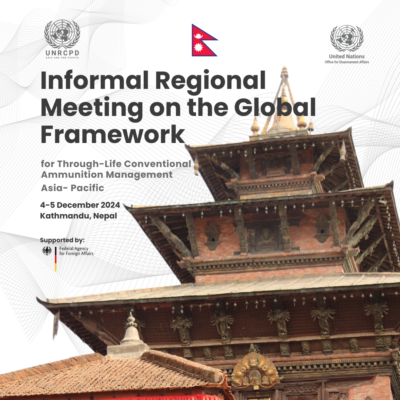
Asia-Pacific States convened in Kathmandu to promote sustainable, safe and secure ammunition management
What is a gun without bullets? It is the bullet—tiny, unassuming, yet devastating—that fuels the fires of conflict, transforming intent into impact. People don’t die from gun wounds; they die from bullet wounds. Ammunition, often overlooked in disarmament efforts, is the oxygen of violence and the lifeblood of conflict. Yet, shells, cartridges, and bullets remain far less regulated, monitored, and secured than the weapons they power.
This imbalance has grave consequences. Loosely controlled ammunition fuels instability, arms criminals, sustains terrorists and prolongs conflicts. Meanwhile, the failure to manage stockpiles safely has led to catastrophic unplanned explosions, devastating communities and claiming thousands of lives.
These challenges demand urgent attention. The adoption of the Global Framework for Through-life Conventional Ammunition Management by the United Nations General Assembly in December 2023 marks a pivotal step forward
From 4-5 December 2024, representatives from 19 Asia-Pacific States gathered in Kathmandu, Nepal, alongside United Nations entities, international, regional and non-governmental organizations and civil for an informal regional meeting on the framework. The meeting was organized by the United Nations Office of Disarmament Affairs (UNODA) and its Regional Center for Peace and Disarmament in Asia and the Pacific (UNRCPD), in collaboration with the Ministry of Foreign Affairs of Nepal, with the financial support of Germany. The objective was to raise awareness of the political commitments following the successful adoption of the Global Framework by the United Nations General Assembly (UNGA) in December 2023.
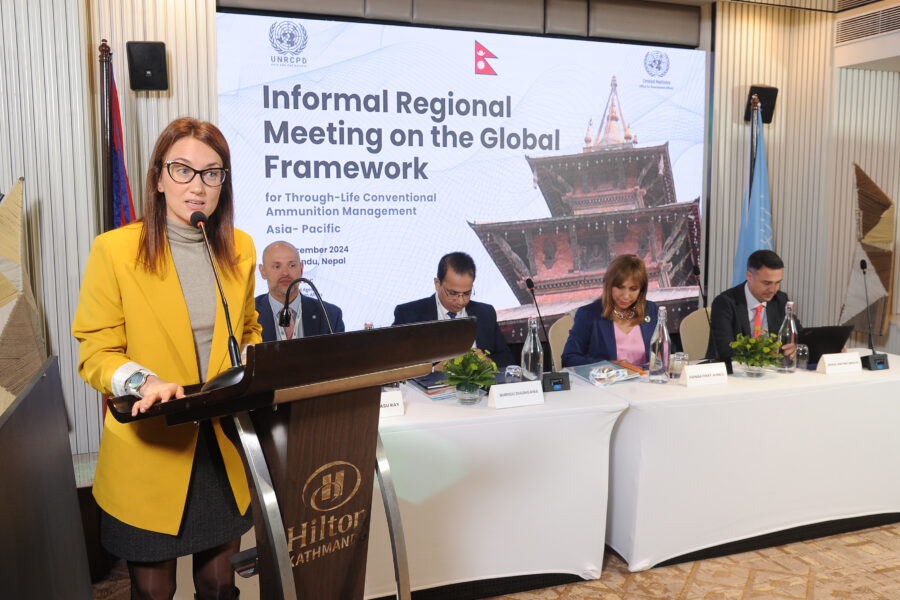
[Photo 1] Ms. Ida Scarpino, Political Affairs Officer, UNRCPD, welcoming participants and commencing the meeting
Over the course of two days, plenary sessions, group discussions, and expert presentations were held to exchange good practices and to discuss regional priorities and needs, as well as the unique challenges and opportunities in translating the political commitments in the Global Framework into concrete actions at the regional and national level.
The informal regional meeting opened on 4 December with welcoming remarks from Mr. Deepayan Basu Ray, UNRCPD’s Director, Mr. Manuel Martinez Miralles, Senior Political Affairs Officer with UNODA, Ms. Hanaa Fikry Ahmed Singer, UN Resident Coordinator in Nepal, and Ambassador Bhrigu Dhungana, Joint Secretary, Ministry of Foreign Affairs of Nepal.
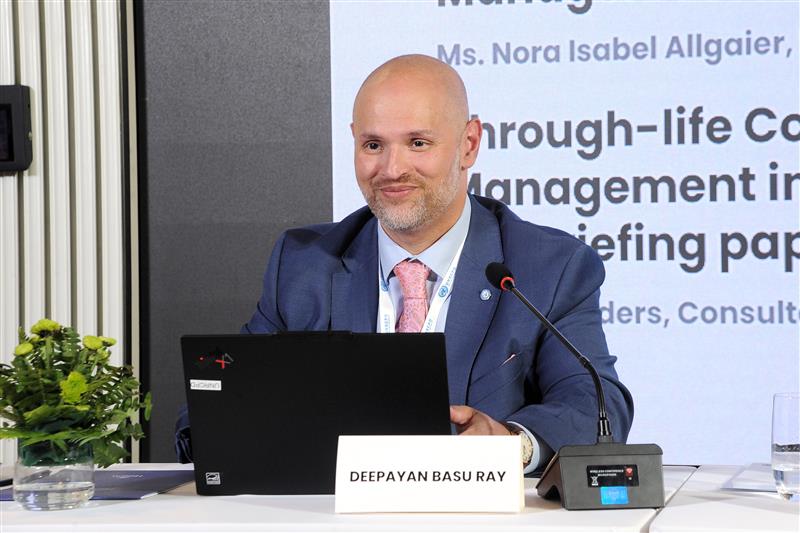
[Photo 2] Mr. Deepayan Basu Ray, Director of UNRCPD, moderating the Opening Remarks
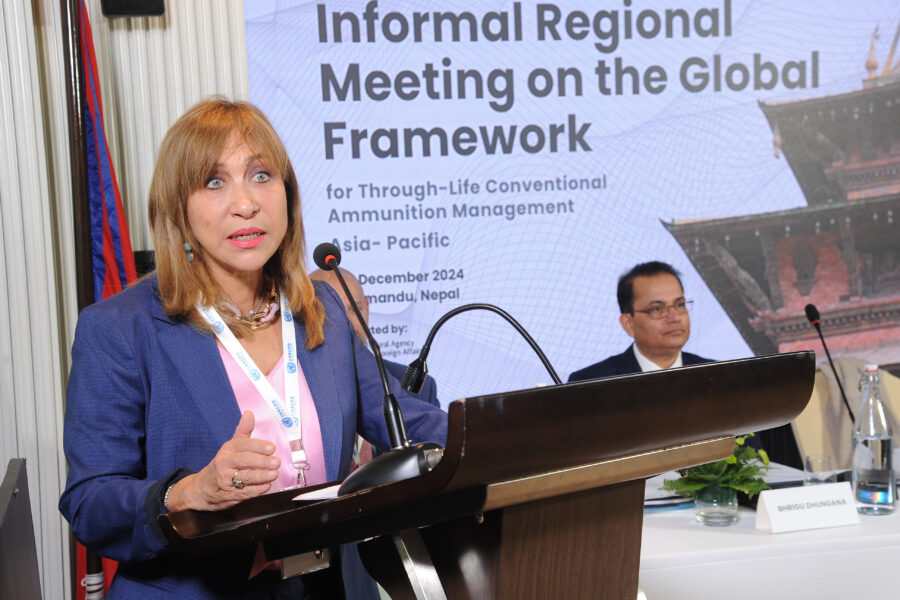
[Photo 3] Ms. Hanaa Fikry Ahmed Singer, UN Resident Coordinator in Nepal, delivering the Opening Remarks
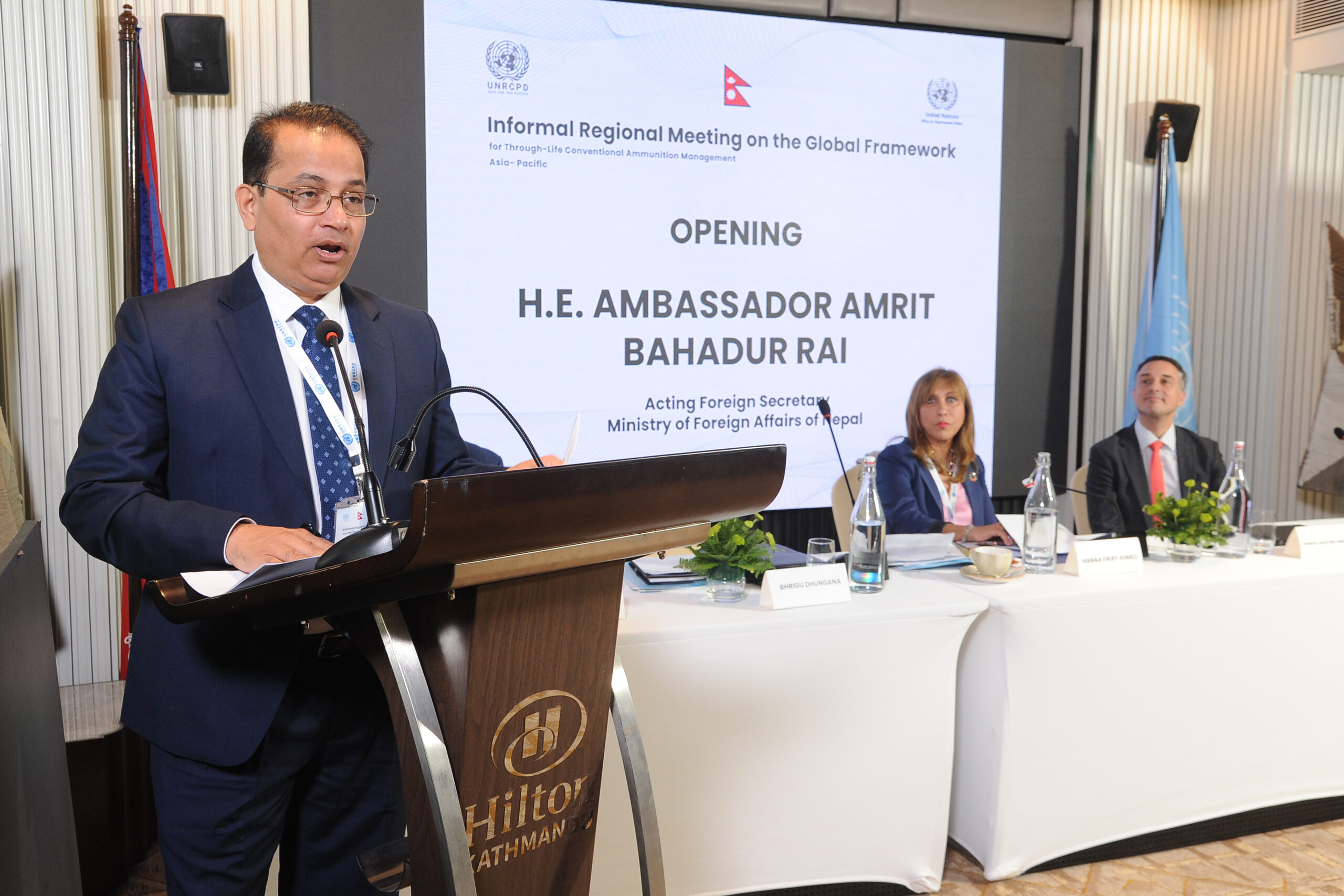
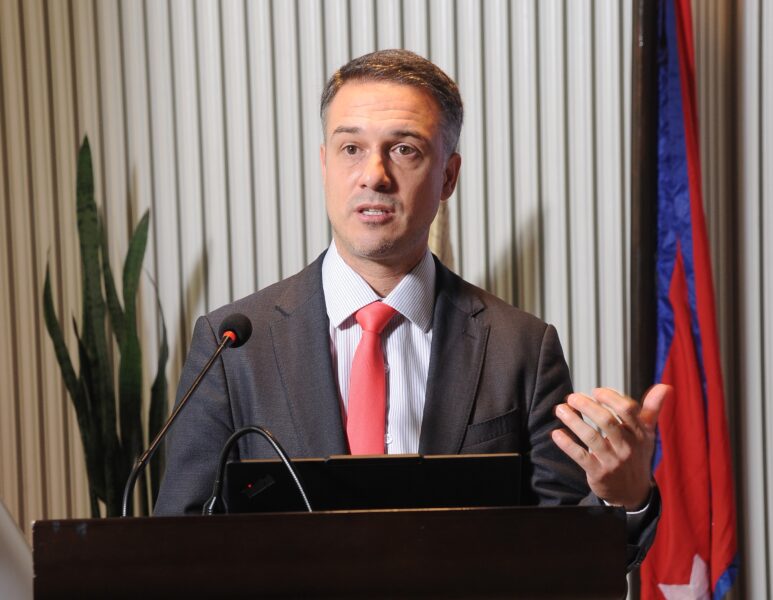
Ms. Nora Isabel Allgaier, UNODA, provided an overview of the historical background of the Global Framework’s development, its aim, structure, scope and content of the 15 objectives, as well as the instrument’s dedicated follow-up and review process. Mr. Nils Anders, UNRCPD consultant presented initial research findings on opportunities and challenges in the region for the effective implementation of the Global Framework. Participants then examined existing regional and sub-regional coordination and cooperation mechanisms in Asia-Pacific that could be leveraged for the sustainable implementation of the Global Framework.
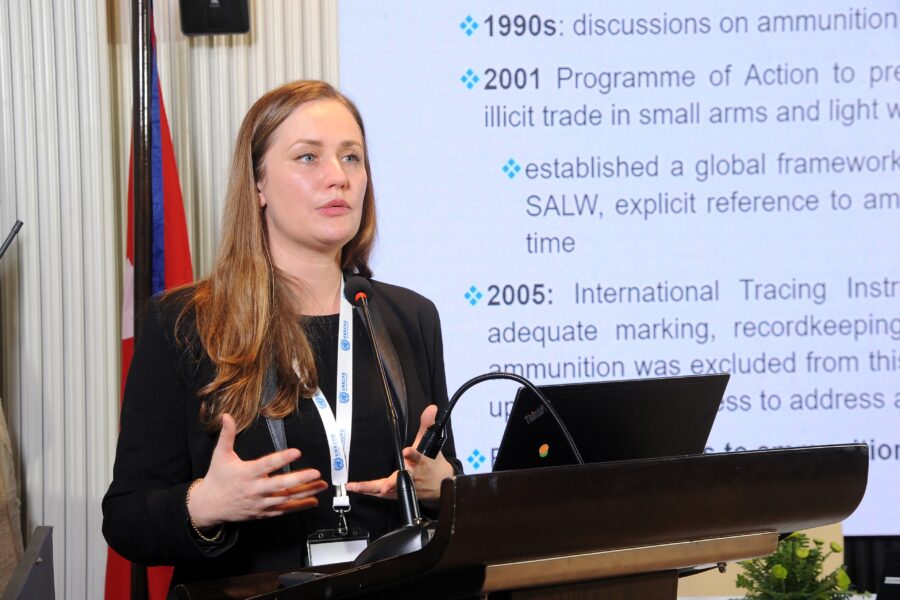
[Photo 6] Ms. Nora Isabel Allgaier, UNODA, presenting ‘Introduction to the Global Framework for Through-life Conventional Ammunition Management’
Among relevant mechanisms, Martin Ontog of the Philippines Office of the Special Envoy on Transnational Crime (OSETC), alongside Ms. Mitzi Austero of Non-Violence International Southeast Asia (NISEA), presented the Regional Roadmap Towards a Regional Mechanism in Weapons Regulation Collaborative areas. Pol. Lieutenant Colonel Polrith Chhoeuth, Deputy Chief of the Department of Firearms and Explosive Management, of the Ministry of the Interior of Cambodia, and member of the Senior Officials Meeting on Transnational Crime of the Association of Southeast Asian Nations (ASEAN), highlighted synergies with the ASEAN Declaration on Firearms Smuggling were highlighted by , Ms. Aidai Erkinbek Kyzy, On behalf of the Organization for Security and Co-operation in Europe (OSCE), described initiatives to reduce to combat illicit trafficking of ammunition in Central Asia and to mitigate the risk of unplanned ammunition explosions. She also showcased a range of assistance opportunities for the implementation of the Global Framework that requesting states can access in the sub-region.
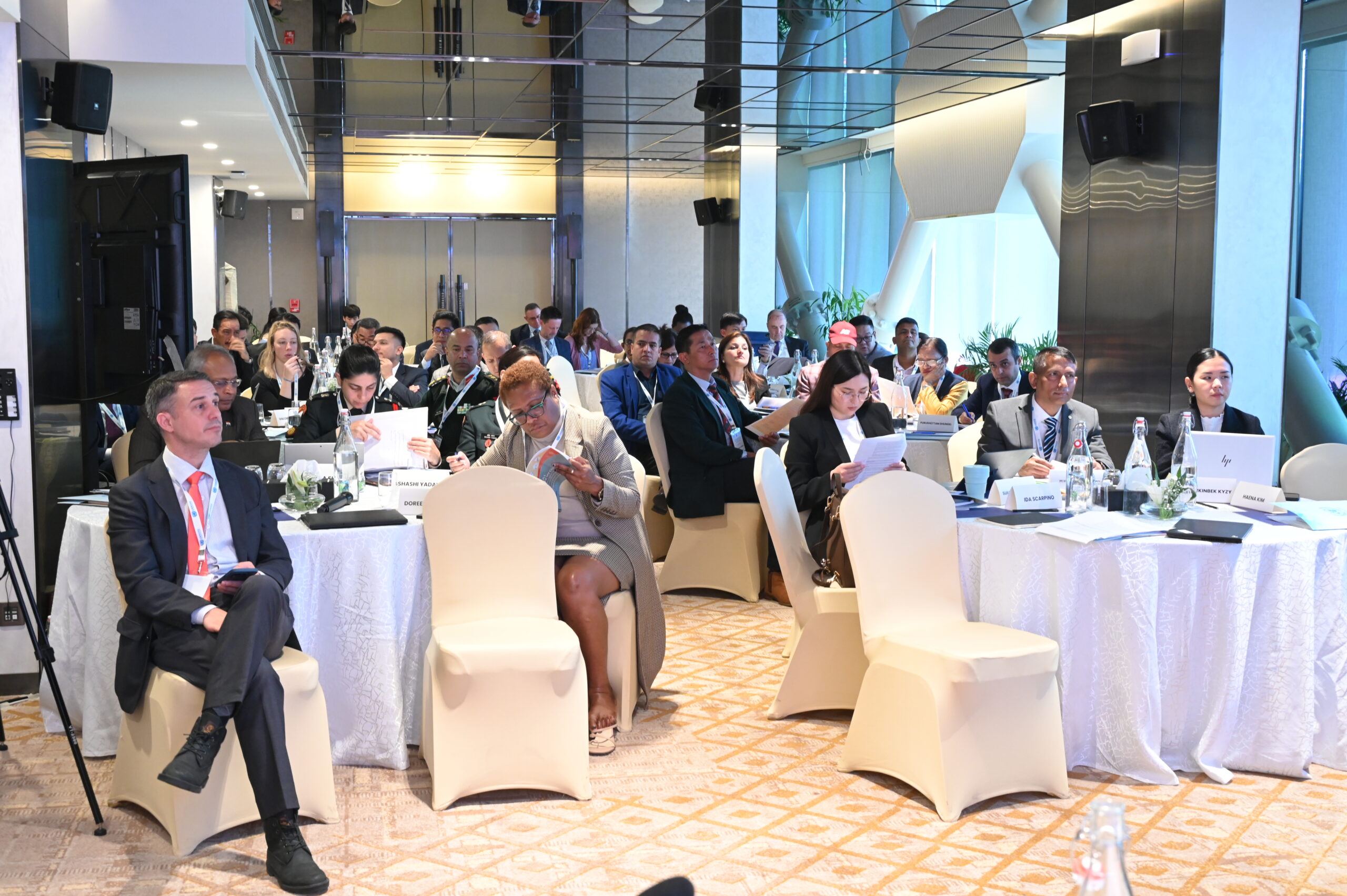
[Photo 7] On Day 1, Participants listening to a presentation
The discussion on sustainability continued with insights into available resources, tools and opportunities for assistance and capacity building, particularly through the application of the International Ammunition Technical Guidelines (IATG). The panel featured Mr. Valon Kumnova, Director of Operations at the Geneva International Centre for Humanitarian Demining (GICHD), Major Shashi Yadav and Major Tvisha Shukla, Ammunition Technical Officers from the Indian Army, and Mr. Joshua Angelo Bata, Associate Researcher at the United Nations Institute for Disarmament Research (UNIDIR). Joining online, Mr. Bata presented additional resources, such as the Weapons and Ammunition Management (WAM) Baseline Assessments and Reference Methodology, further highlighting integrative approaches to sustainable ammunition management.
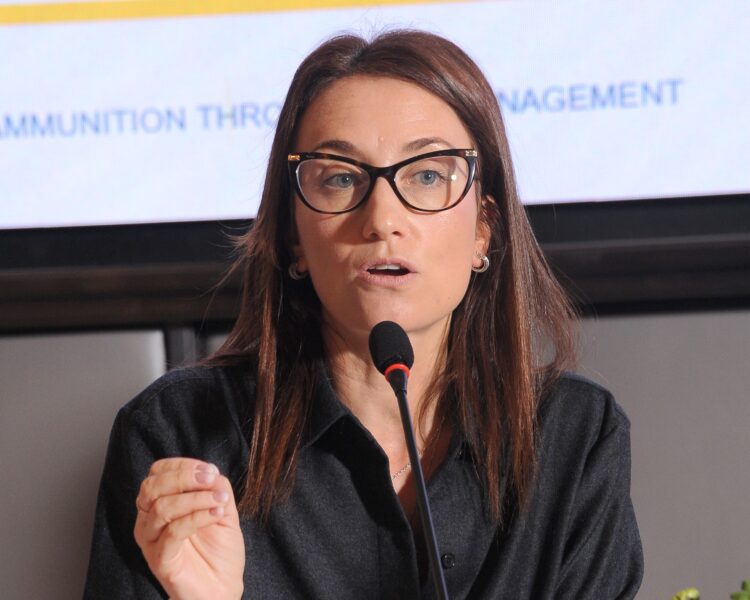
[Photo 8] Ms. Ida Scarpino, Political Affairs Officer at UNRCPD, moderating Session 3: Gender and Ammunition Management
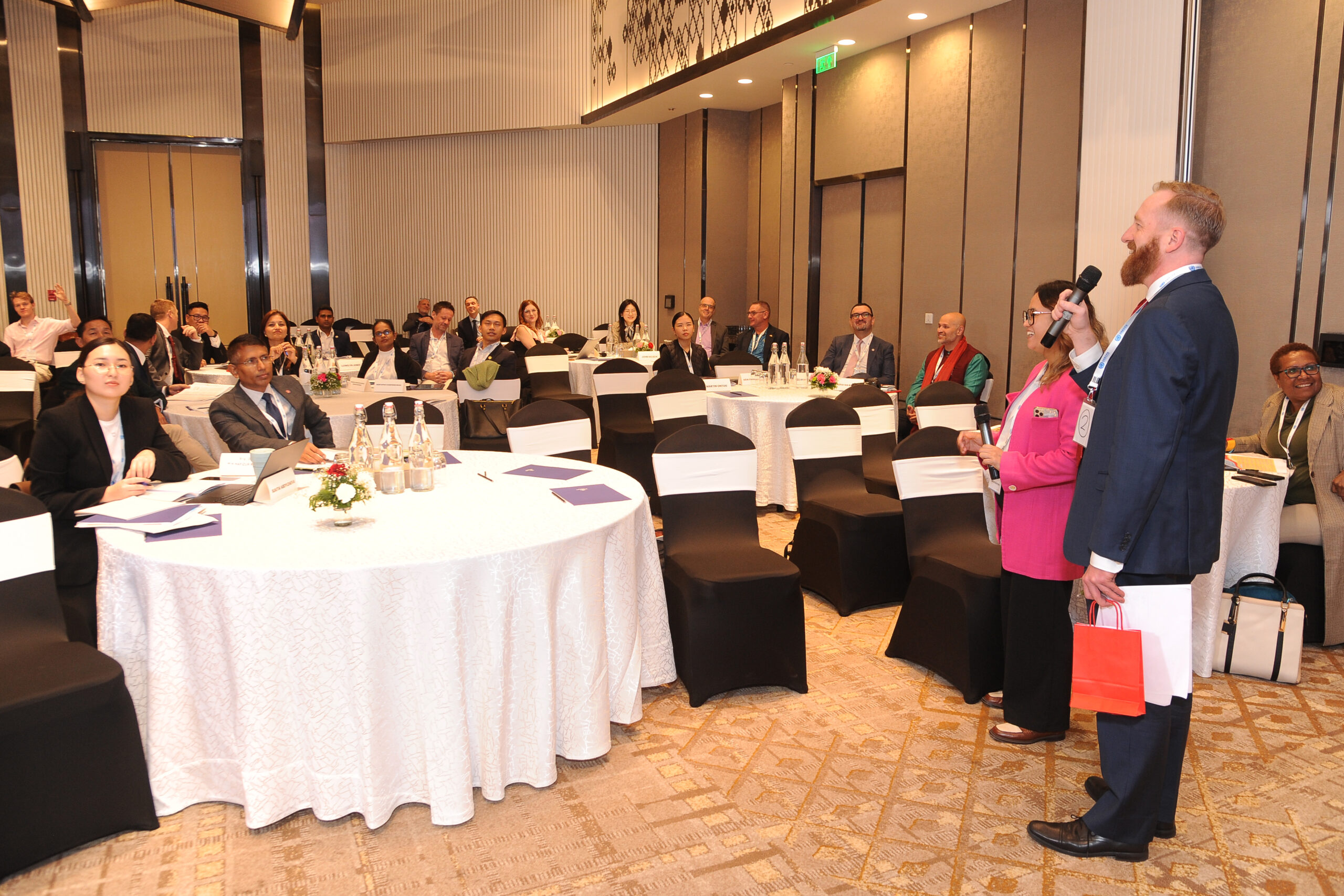
[Photo 9] On Day 2 – Ms. Mitzi Austero, Programme Manager at NISEA, and Mr. Callum Watson of the Small Arms Survey (SAS) leading Session 3: Gender and Ammunition Management.
The second day started with an interactive and engaging session on gender and ammunition management in line with objective 14 of the Global Framework, led by NISEA’s Ms. Austero and Mr. Callum Watson of the Small Arms Survey (SAS), with substantive inputs from Major Shashi Yadav and Major Tvisha Shukla from the Indian Army. Speakers and participants identified the need to better understand the differentiated impact of diversion and unplanned explosions on women, men, boys and girls. The discussions also stressed the importance of addressing structural, social and cultural barriers to women’s full, equal, meaningful and effective participation in the sector.
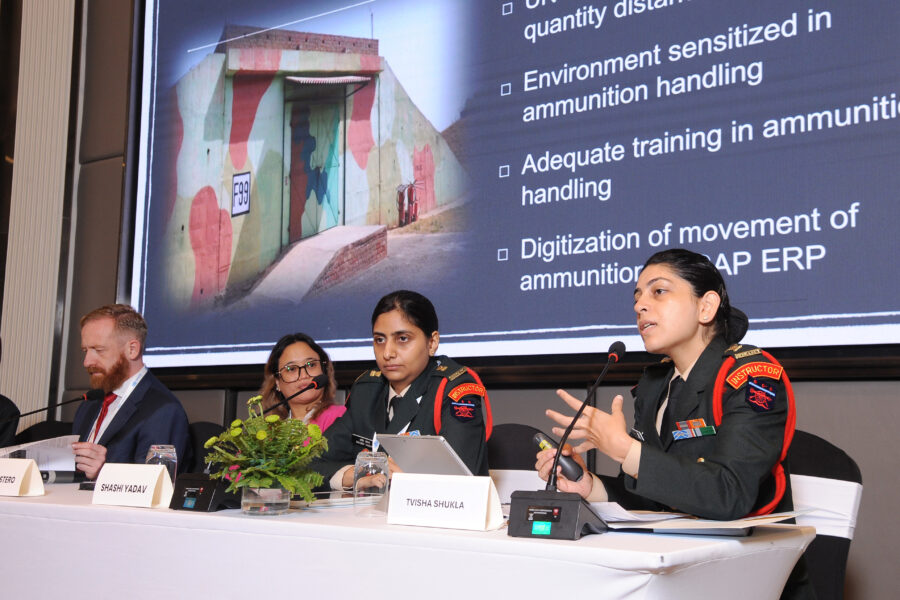
[Photo 10] Major Shashi Yadav and Major Tvisha Shukla from the Indian Army presenting ‘Women’s Participation in Ammunition Management”
One of the central themes of the meeting was safe ammunition stockpile management. The Nepali Army shared their national experience to prevent and mitigate the risk of unplanned explosions at munitions sites and their response to such incidents. Unpacking the safety objectives of the Global Framework, Ms. Josephine Dresner and Mr. Llewelyn Jones of the Mines Advisory Group (MAG), presented on ammunition surveillance, inventory management, and risk reduction measures such as timely disposal, safe storage practices and ensuring that depots are located away from populated areas.
The focus then shifted to security aspects of conventional ammunition management to prevent the diversion of ammunition to unauthorized recipients. Conflict Armament Research’s Mr. Himayu Shiotani presented the interlinked circular process to promote through-life security, including supply-chain transparency, marking and tracing, data collection, and the analysis of diversion risks. UNRCPD’s consultant Mr. Nils Anders dived further into the value of diversion monitoring to identify trafficking trends and patterns for the development of effective response measures, sharing his experience in West Africa.
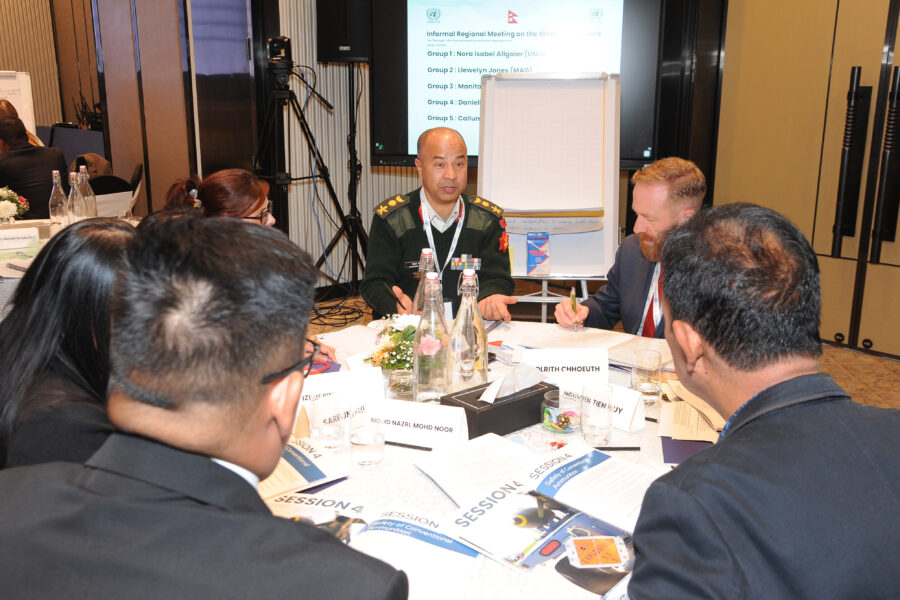
[Photo 11] On Day 2, Break-out Groups discussing strategies
The final session allowed for a review of the key highlights and takeaways of the meeting. Participants were encouraged to act as goodwill ambassadors of the Global Framework, actively disseminating knowledge, sharing documentation, and organizing briefings within their respective States. Looking forward, the first Preparatory Meeting of States is scheduled for 23-27 June 2025 in New York to set the agenda for the next year. UNODA will continue its outreach and implementation support for the Global Framework, with UNRCPD highlighted as the go-to contact point for information and assistance in the region.
Conclusions highlighted the importance of identifying common elements among States for the implementation of the Global Framework in the region and its integration into national and regional frameworks. The meeting marked the beginning of a comprehensive process to implement the commitments set out in the Global Framework that requires collaboration and proactive engagement from States as well as regional and non-governmental organizations. Comprehensively addressing ammunition management challenges across the Asia-Pacific region will demand a coordinated and inclusive approach involving all stakeholders.
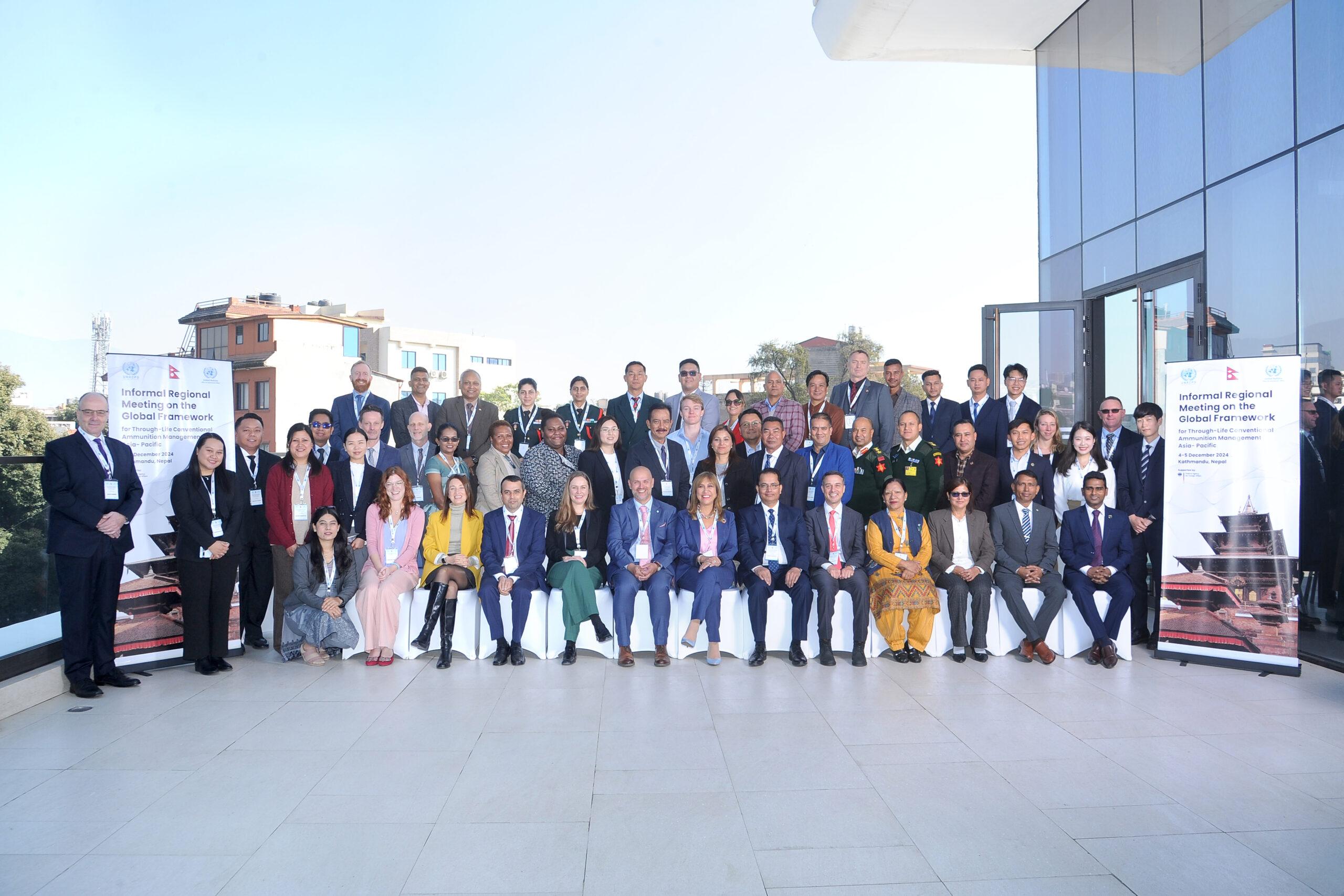
[Photo 12] Group Photo

